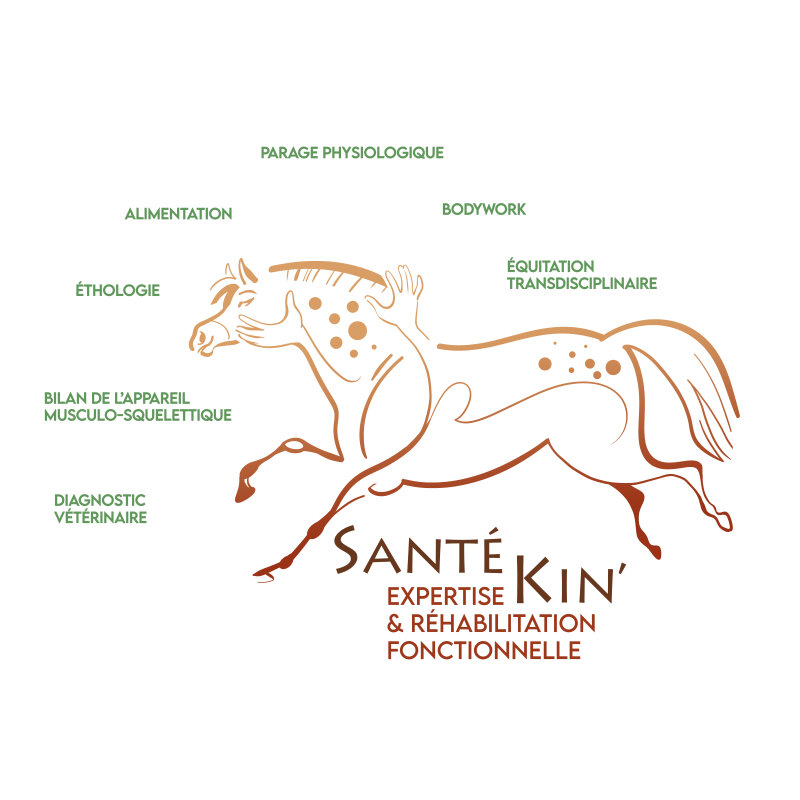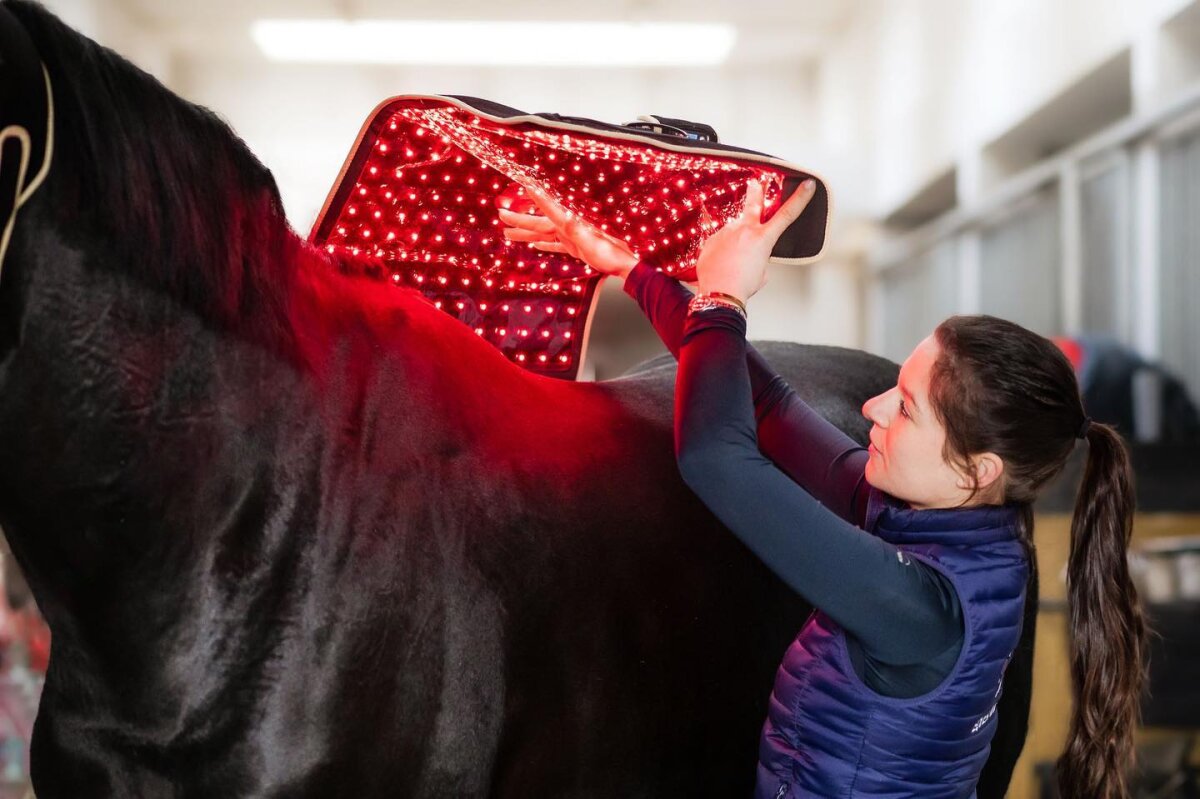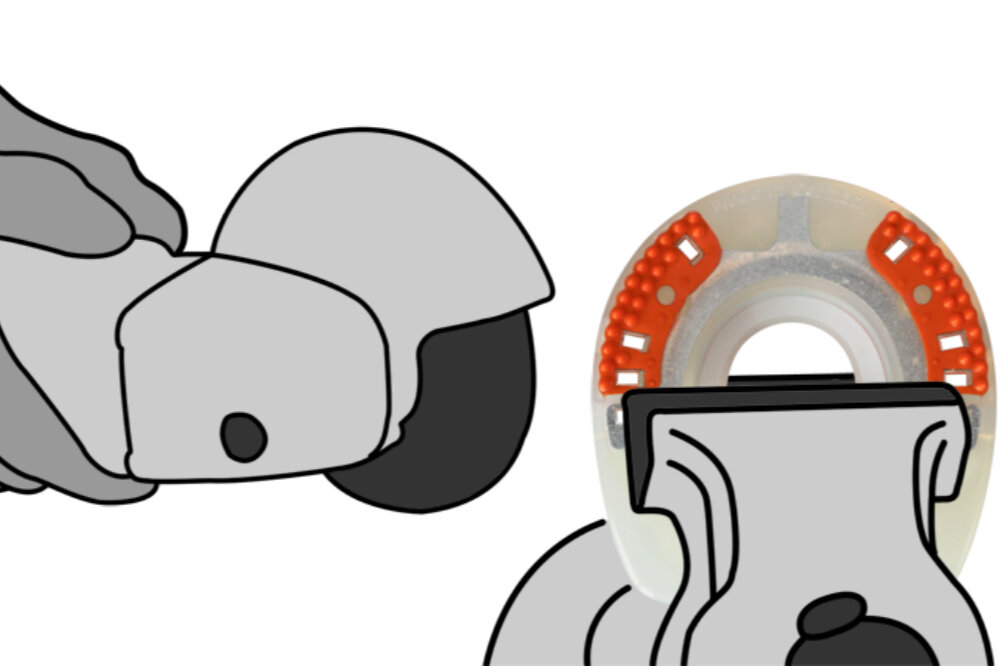Other muscle diseases are infectious or immune myopathy and hyperkalemic periodic paralysis (HYPP).
There are two different types of PSSM. Type I PSSM involves an enzyme defect which leads to excessive storage of glycogen and/or of atypical long-chain carbohydrates in the skeletal muscles. Glycogen serves as a form of energy storage, providing glucose in the bodies of animals and humans. This enzyme defect can be determined through genetic testing. Alongside PSSM Type I, another genetic defect may be suspected: PSSM Type II. PSSM is mostly prevalent in American Quarter Horses, American Paint Horses, Belgian Draft Horses, Percherons and Warmbloods. Type II appears more often in Warmbloods.
The horse’s medical history, a clinical examination and the determination of serum enzyme activities of muscle enzymes in connection with a stress test may result in a tentative diagnosis of PSSM. At rest, the muscle enzymes in the blood are in the upper normal range, while they spike sharply through stress and only slowly return to normal afterwards. A tentative diagnosis of PSSM may be confirmed through a muscle biopsy. However, other possible causes should be ruled out beforehand, such as locomotor system disorders.
There is no cure for equine polysaccharide storage myopathy. Symptoms can be avoided through the prevention of stress, including irregular strain or excessive play with other horses. It is important that the affected horse develop good physical condition through daily, gradually increased work. Horses with PSSM should not be left standing in the stable for long periods, but rather be given ample and regular turnout. After showing acute symptoms, the horse should be given about two weeks to move freely in the paddock or in a pasture that’s not too rich. After that, it can begin with gradually-increasing workouts.
How can feeding affect the progress of PSSM?
Horses that suffer from PSSM should be fed very little starch. These horses should generally be fed a sufficient amount of high-quality hay: at least 1.5 kg per 100 kg of target body weight. If this is not possible, one can supplement or replace forage with AGROBS AlpenHeu, Pre Alpin® Wiesencobs, Pre Alpin® Wiesenflakes, Pre Alpin® Compact or Pre Alpin® Aspero. Turnout is recommended to allow ample movement, however the pasture should not be too rich.
Horses that need more calories may also be fed lucerne, for example in AGROBS Luzerne+ and AGROBS Luzernecobs, or be given supplementary fat, such as high-quality oils, for extra energy. Suitable options here are quality plant-based oils that are high in unsaturated fatty acids. Oils should be fed to the horse slowly in order to avoid diarrhoea.
A good alternative to cereals and cereal-rich concentrated feed is AGROBS AlpenGrün Müsli, which is cereal- and molasses-free. You can also support digestion in horses with PSSM with AGROBS AlpenGrün Mash, which also contains no cereals or molasses.
For an adequate supply of minerals and trace elements, it is recommended that the ration be supplemented with a cereal- and molasses-free mineral feed like AGROBS Naturmineral, AGROBS Weidemineral-Cobs or AGROBS Seniormineral. One should especially take care with horses susceptible to stress myopathies that they are given enough selenium and Vitamin E , as adequate supplies of selenium and Vitamin E are essential for good muscle function. In case of deficiency, we recommend the therapeutic administration of a high-quality supplementary feed with selenium (such as AGROBS Selen pur).
Sport horses with high performance requirements should be given sufficient electrolytes and fresh drinking water to prevent cellular damage. Every horse should also have access to an ample supply of clean, fresh drinking water. AGROBS Bavaria rock salt, from the famous salt mines of Berchtesgaden, Bavaria, can be used to compensate for electrolytes.
Sources*:
- Meyer H., Coenen M.: Pferdefütterung. Enke Verlag Stuttgart, 2014
- Dietz O., Huskamp B.: Handbuch Pferdekrankheiten. Enke Verlag Stuttgart, 2006
- Gerber H. et al.: Diskussion der Polysaccharid-Speichermyopathie (PSSM) an vier Fällen. Pferdeheilkunde, 2001/1 (January/February), pp. 11–20
- Schnieders S.: Der PHCG informiert. PSSM - Muskelerkrankung bei Westernpferderassen. Paint Horse Club Germany, March 2011
Dr. med. vet. Katharina Boes
October 2015 ©AGROBS GmbH
(* The references refer to the technical content of the text and not to the product recommendations.)

 German
German French
French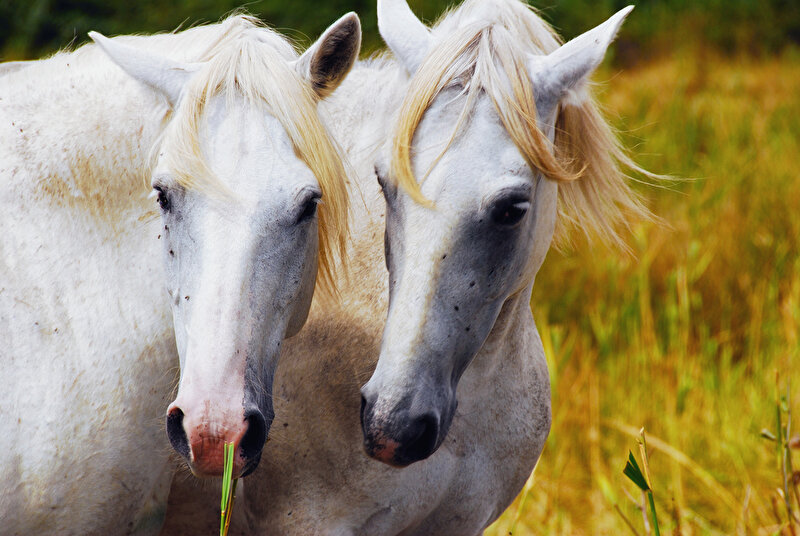
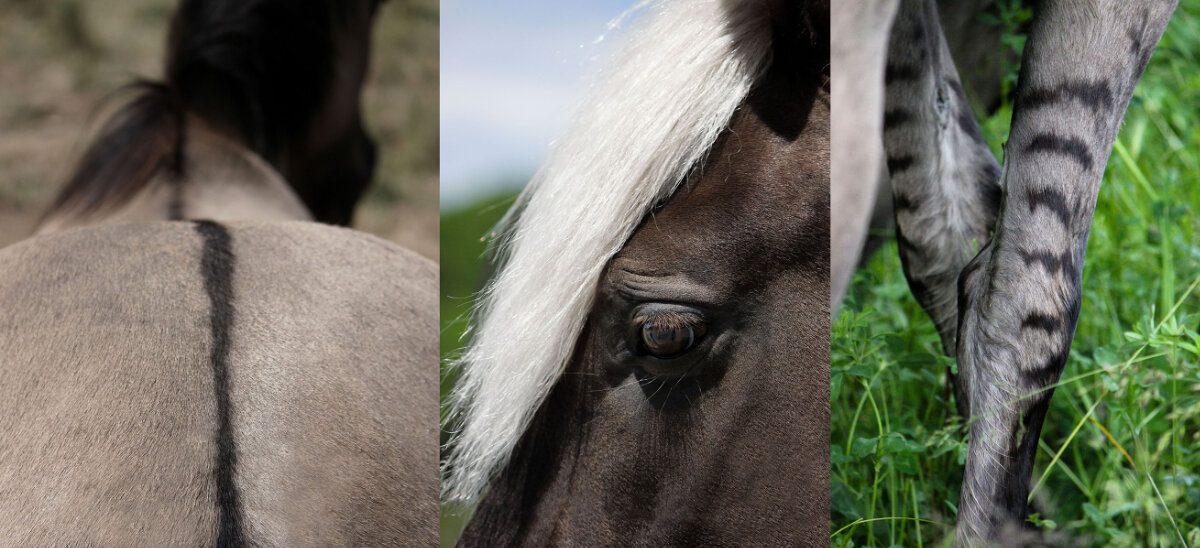
-for-horses.jpg)
